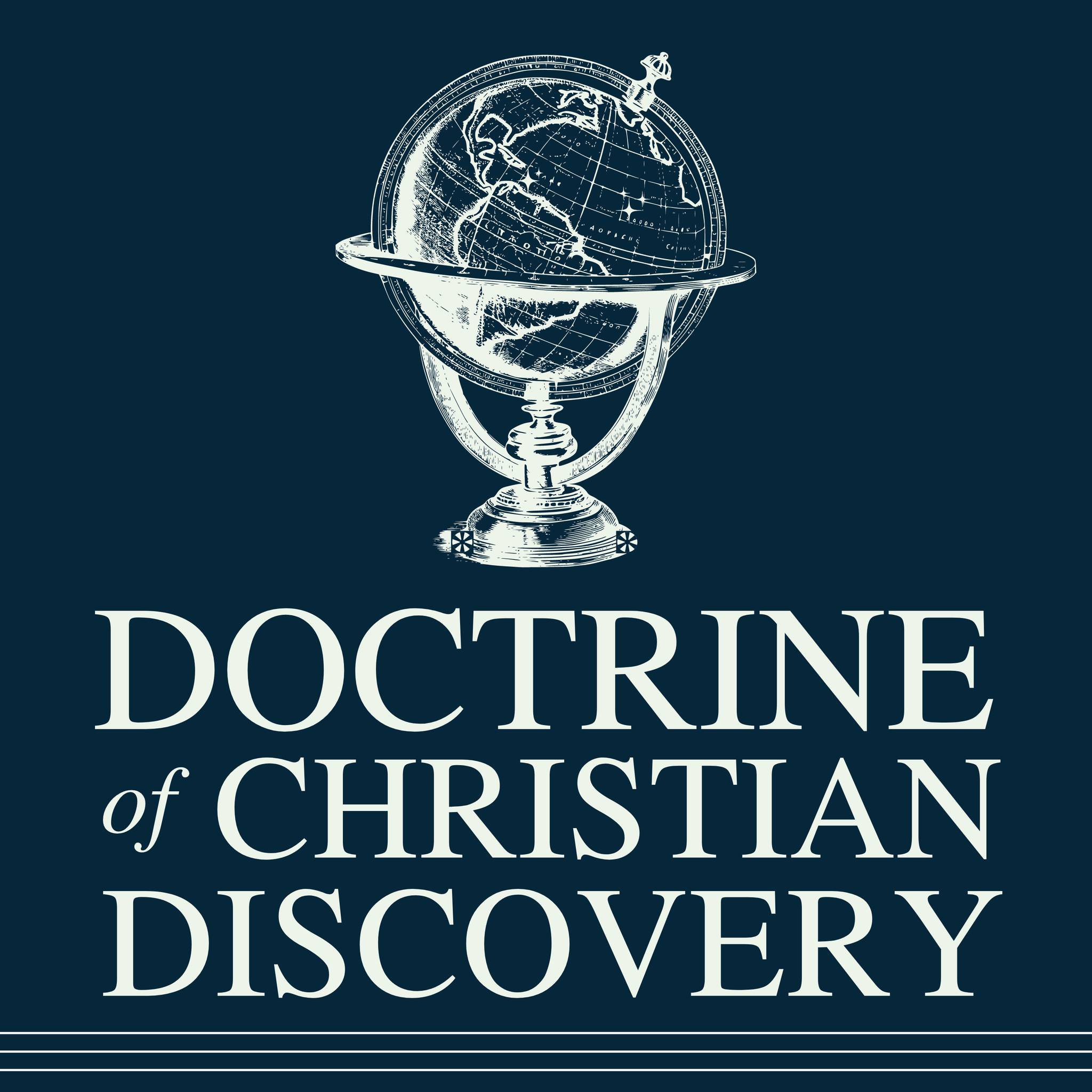
Author: adamdjbrett
special · 20 Feb 2024
João Chaves: The Doctrine of Christian Discovery's Influence in the Americas
Episode 7 Doctrine of Christian Discovery Podcast Special Season
⤓ Download a transcript of the Episode as a PDF // Listen to the podcast on Megaphone, Spotify or Apple. Listen on Good Faith Media.
Introduction
We begin this episode with a land acknowledgement.
The podcast explores how a centuries-old Christian doctrine encouraged conquest and colonization of non-Christians – and how its legacies still affect various lands and peoples.
Special guest: João Chaves, assistant professor of the history of religion at Baylor University.
Don’t forget to leave us a review wherever you get your podcasts.
Show Notes
- Doctrine of Christian Discovery’s impact in the Americas. 0:03
- João Chaves discusses the influence of the doctrine of Christian discovery in Latin America and South America, providing examples of its impact on government frameworks in the region.
- The Doctrine of Discovery’s impact on indigenous peoples in Brazil. 4:22
- Brazil’s history of indigenous land appropriation traced back to the Doctrine of Discovery and the Portuguese Empire.
- Indigenous rights in Brazil face encroachment from market forces and religious leaders.
- complex issue of evangelicalism’s impact on indigenous peoples, including promotion of Doctrine of Discovery.
- Brazilian evangelicalism and its connections to US politics. 11:23
- Evangelicalism in Brazil has a long history of transnational connections and support from the US, particularly during the dictatorship.
- Protestantism in Brazil grows due to government support and evangelical networks, despite social conservatism.
- João Chaves highlights the rapid spread of Christianity in Brazil and the factors that contributed to its growth.
- In Brazil, Pentecostalism has grown rapidly due to urbanization and the crisis in the Catholic priesthood, with Afro-Brazilian religions also playing a role in conversion.
- Sociologists and scholars have noted how Pentecostalism’s adaptability and cultural alignment with Afro-Brazilian religions have contributed to its growth, leading to a shift away from Catholicism and Afro-Brazilian religions.
- Religion’s influence on government structures in Brazil and the US. 21:59
- Speakers discuss how religion can influence government structures in Brazil and other South American countries, leading to extremism and white nationalism.
- Brazil’s religious right seeks to impose Christian values on nation through education.
- Brazil plays a significant role in the US religious right’s global connections, despite cultural differences.
- Fascism, history, and social inequality. 28:50
- João Chaves suggests that the appeal of fascism may be due to the relatively short history of democracy, as it has not been the dominant form of governance for a long time.
- João Chaves argues that post-WWII aspirations for a more united world remain unrealized due to ongoing issues like segregation, hunger, sexism, homophobia, and limited definitions of humanity.
- White supremacy reacts to diminishing role in society as minoritized groups diversify.
- Addressing societal issues and systemic change. 35:50
- João Chaves reflects on hope for future generations, citing Cornel West’s optimism despite challenges.
- He discusses the complexities of systems of oppression with students, acknowledging the challenges of living ethically in a deeply ingrained system.
Resources
- Marshall Trilogy
- Onondaga Nation Land Claim
- João Chaves, Ph.D.,, Assistant Professor of the History of Religion in the Américas and Co-Director of the Baptist Scholars International Roundtable (BSIR).
Books
- With T. Laine Scales (eds.), Baptists and the Kingdom of God: Global Perspectives (Waco: Baylor University Press, 2023).
- With Mikeal C. Parsons, Remembering Antônia Teixeira: A Story of Missions, Violence, and Institutional Hypocrisy (Grand Rapids: Wm.B. Eerdmans, 2023).
- The Global Mission of the Jim Crow South: Southern Baptist Missions and the Shaping of Latin American Evangelicalism (Macon: Mercer University Press, 2022).
- Migrational Religion: Context and Creativity in the Latinx Diaspora (Waco: Baylor University Press, 2021).
- O Racismo na História Batista Brasileira: Uma Memória Inconveniente do Legado Missionário (Brasília: Novos Diálogos, 2020).
- Evangelicals and Liberation Revisited: An Inquiry into the Possibility of an Evangelical-Liberationist Theology (Eugene: Wipf & Stock, 2013).
Edited Journal Issues
- Christianity, Race, and Ethnicity: Latinx Critical Conversations on Identity Construction and Religious Participation, Perspectives in Religious Studies, 49/4, Winter 2022.
- Contributors: Gerardo Marti, Raimundo Barreto Jr., Robert Chao Romero, Angela Tarango, Jonathan Calvillo, Rodrigo Serrão, Brett C. Hoover, and Jennifer Owens-Jofré
Peer-Reviewed Articles
- With Godfrey Harold, “Constructing Afro-Descendant Christianties: Towards Hemispheric Histories for Racial and Ethnic Solidarity” in The South African Baptist Journal of Theology, 30 (2021), 172-181.
- With Rodrigo Serrão, “Immigrant Evangelicalism in the COVID-19 Crisis: Reactions and Responses from Brazilian Evangelical Churches in Florida” in The International Journal of Latin American Religions 4 (September 2020): 235-249.
- “Exporting Holy Fire: Southern Baptist Missions, Pentecostalism, and Baptist Identity in Latin America” in Perspectives in Religious Studies 47.2 (Summer 2020): 203-214.
- “Expanding the Fear of the Mongrel: Baptist Missions in Latin America and Transnational Racist Cross-Pollination” in Baptist History and Heritage Journal LIV.2 (Summer 2019): 81-91.
Credits
- Hosts: Mitch and Tanner Randall, Good Faith Media.
- Executive producers: Mitch Randall, Good Faith Media; Philip P. Arnold and Sandy Bigtree, Indigenous Values Initiative; and Adam DJ Brett, Syracuse University and American Indian Law Alliance.
- Producer: Cliff Vaughn.
- Editor: David Pang.
- Music: Pond5.
- Production Assistance: American Indian Law Alliance.
- Sponsors: The Henry Luce Foundation; Syracuse University; Indigenous Values Initiative; American Indian Law Alliance; American Indian Community House; Good Faith Media; Tonatierra; and Toward Our Common Public Life. We appreciate your support.
Citation
Mitch and Tanner Randall, “João Chaves: The Doctrine of Christian Discovery’s Influence in the Americas,” Doctrine of Christian Discovery (Podcast), February 20, 2024. https://podcast.doctrineofdiscovery.org/special/s07/.
